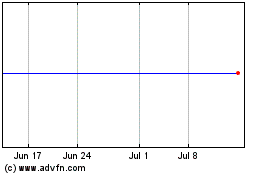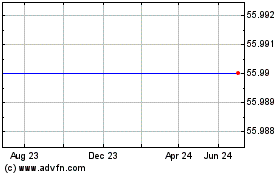Today Nuance Communications, Inc. (NASDAQ:NUAN) announced it
has expanded its partnership with Deutsches Forschungszentrum für
Künstliche Intelligenz (DFKI GmbH), the German Research Center for
Artificial Intelligence (AI) and world’s largest research center,
dedicated to the development of AI methods and applications. Nuance
opened an office at the DFKI campus in Saarbruecken to further
advance cognitive and conversational AI innovation across several
joint research initiatives, including the relationship between
humans and in-car systems, as well as AI applied to healthcare
systems and omni-channel customer care.
Nuance and DFKI have already begun work addressing the
application of conversational and cognitive AI for autonomous
systems for self-driving cars, where automotive assistants in these
environments must be intelligent and collaborative to effectively
engage passengers when it’s their turn to drive.
Autonomous cars will provide more hands-off time for people,
where they’ll now spend their time being entertained or productive
– either watching movies, catching up on the latest news, or making
better use of long commutes through work productivity apps and
services. However, control of the vehicle needs to be handed
back to the driver quickly and seamlessly when hands-on engagement
is needed. To better understand the many scenarios where transfer
of control will need to happen and how, Nuance and DFKI conducted a
human-based usability study to identify the most effective ways to
grab a passenger’s attention.
Participants of the study were placed in a
simulated autonomous car environment in a variety of situations,
such as reading, listening to music, writing an email, and watching
a movie. While participants were engaged in activities, the
autonomous system would alert them through vibration (haptic),
visual and auditory cues to see which of the senses responded the
fastest to take the wheel. The study included a variety of
scenarios such as inclement weather conditions, system diagnostic
warnings, sensor defects, traffic jams and general rules of the
road. Following the scenarios, participants were asked to rate
their experience on the pleasantness, usability, information trust
and information usefulness in each of the scenarios.
Key findings of the study were:
- Integrated, multimodal user interfaces leveraging voice, touch
and visual cues were preferred by the majority of participants.
Drivers weren’t as responsive or pleased with notifications using
the same modality as their current activity, and would rather a
combination of alerts adapted to their current activity. For
example, if someone is reading a book, participants preferred to be
alerted by a sound or vibration. And when engrossed in
e-mails or work activity, drivers preferred to be alerted by
sound.
- Systems must have contextual data and information from the car
and the car sensors, including information about the current
activity of the driver, and the best alert cue to ensure faster
reaction and better user experience.
- Independent of the current driver activity, sound is considered
more pleasant and effective than visual cues, leading to faster
reactions than simply vibrations or haptic alerts.
- Drivers trust audible and haptic responses from the automotive
assistant more than visual cues alone.
- Data indicates that the reaction time is the lowest when the
driver is engaged in a listening activity, such as listening to a
book or music.
The DFKI study is complementary to a recent survey conducted by
Nuance in US and the UK among 400 drivers looking at the type of
activities that drivers are planning to do as passengers in an
autonomous car.
If alone on a longer trip, respondents cited their top five
activities in the car would be listening to the radio (64%)
relaxing (63%), talking on the phone (42%), browsing the Internet
(42%) and messaging (36%) -- all representing a combination of
visual, auditory and haptic tasks.
If driving with others, people naturally engage more in
activities with the co-passengers, like having conversations (71%)
or listening to the radio (58%), rather than talking on the phone
(only 19%) or messaging (23%).
“Our partnership with DFKI is focused on advancing the state of
the art of AI solutions for physicians, healthcare organizations,
automakers, and enterprises,” said Vlad Sejnoha, Chief Technology
Officer, Nuance Communications. “Nuance and DFKI share the vision
that advanced personal assistants and cognitive technologies can
effectively amplify human intelligence, and in the process,
transform patient and customer care, and make our experience with
smart devices and the connected car vastly more productive and
rewarding.”
“Cognitive and conversational AI are the key technologies
driving the second wave of digitalization, that is based on deep
machine understanding of digital data. Partnering with Nuance
allows us to put innovation into action – taking our research and
directly applying it to the systems that people use every day, and
addressing the real-world challenges and complexities of connected
smart service platforms. With a Nuance office at the DFKI
Campus in Saarbruecken, where research groups on autonomous
driving, deep learning, multimodal dialogue, and language
understanding are located, we will continue to push boundaries on
the conversation between humans and smart environments, and
ultimately bring to market the next generation of cars, bots,
assistants and smart objects that simply make everyday life better
and safer,” said Prof. Dr. Wolfgang Wahlster, CEO of DFKI.
The partnership between Nuance and DFKI is also advancing NLU’s
mapping of words to meaning to further develop conversational and
cognitive AI interfaces between people and virtual assistants
across a number of vertical markets, including healthcare and
enterprise omni-channel customer care. Nuance already
supports NLU across more than 40 languages today and is
continuously expanding through the application of “Deep NLU,” which
goes beyond traditional approaches by extracting deeper linguistic
information, a prerequisite for understanding the subtleties of
human language. The DFKI team will help take on a project to
localize Deep NLU into German, leveraging their existing experience
and technology components in this area.
Nuance is a shareholder of DFKI, together with other global
players like Google, Microsoft, Intel, SAP, BMW, Bosch, and
Deutsche Telekom.
About the German Research Center for Artificial
Intelligence GmbH (DFKI)
The German Research Center for Artificial Intelligence is the
leading German research institute in the field of innovative
software technology. In the international scientific community,
DFKI ranks among the most recognized "Centers of Excellence" and
currently is the largest research center worldwide in the area of
Artificial Intelligence and its application in terms of number of
employees and the volume of external funds. 485 employees from 60
countries are currently conducting research focusing on Smart Data
& Knowledge Services, Cyber-Physical Systems, Multilingual
Technologies, Plan-Based Robot Control, Educational Technology Lab,
Interactive Textiles, Robotics Innovation Center, Innovative Retail
Laboratory, Institute for Information Systems, Embedded
Intelligence, Smart Service Engineering, Intelligent Analytics for
Massive Data, Intelligent Networks, Agents and Simulated Reality,
Augmented Vision, Language Technology, Intelligent User interfaces,
and Innovative Factory Systems. Impact: more than 98 professorships
of former DFKI employees, and 70 spin-off companies with
approximately 2,500 highly qualified jobs. For more information:
www.dfki.de
About Nuance Communications,
Inc.
Nuance Communications is the pioneer and leader in
conversational and cognitive AI innovations that bring intelligence
to everyday work and life. The company delivers solutions
that can understand, analyze and respond to human language to
increase productivity and amplify human
intelligence. With decades of domain and artificial
intelligence expertise, Nuance works with thousands of
organizations – in global industries that include healthcare,
telecommunications, automotive, financial services, and retail – to
create stronger relationships and better experiences for their
customers and workforce. To learn more visit www.nuance.com.
Trademark reference: Nuance and the Nuance logo are registered
trademarks or trademarks of Nuance Communications, Inc. or its
affiliates in the United States and/or other countries. All other
trademarks referenced herein are the property of their respective
owners.
Contact Information
For Press
EMEA
Vanessa Richter
Nuance Communications, Inc.
+32 475769507
vanessa.richter@nuance.com
North America
Rebecca Paquette
Nuance Communications, Inc.
1-781-565-5000
rebecca.paquette@nuance.com
Nuance Communications (NASDAQ:NUAN)
Historical Stock Chart
From Mar 2024 to Apr 2024

Nuance Communications (NASDAQ:NUAN)
Historical Stock Chart
From Apr 2023 to Apr 2024
